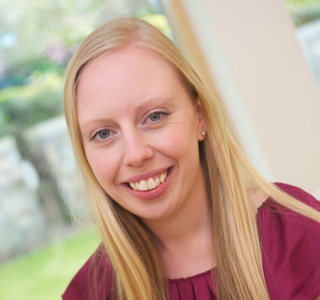Lauren Pennycook examines the strengthening of community partnerships during Covid-19 and the importance of this work continuing
Agile, responsive, and adaptable - three words which capture the support provided by the voluntary, community and social enterprise (VCSE) sector during the Covid-19 pandemic.
At the core of these compliments is the acknowledgement that the VCSE sector often successfully operates without the systems and processes which are in place in the public sector, which allowed organisations to refocus their services at speed to meet communities’ immediate needs during the emergency. But how do we firmly hold on to the flexibility demonstrated during the pandemic, which resulted in support being delivered faster and across a range of needs, more than many imagined possible? How do we resist a permanent return to targets and red tape?
Over the first six months of the pandemic, the Carnegie UK Trust held over 80 conversations with people from 16 communities across the UK, focusing on how organisations and communities were adapting to meet the changing needs of the people around them, and the evolving relationships between the public sector, the VCSE sector, and communities.
And what the trust found was remarkable similarities in the support required by communities across the UK during the crisis – with food; decreasing household income; mental health; and digital access. And there was remarkable consistency about which groups were at the forefront of the support provided – communities themselves, being flexible in the range of support they offered their neighbours and fellow citizens, and working in partnership with the local authority and VCSE sector to provide more effective support than any could offer alone.
The pandemic saw a suspension of the rules – of who organisations work with and why, how they deliver, and to whom. As barriers – real and cultural – were lifted, doors were opened, in many cases, to a single avenue for support. Across the UK, many local authorities chose to develop a community hub, bringing together council, VCSE sector, and citizen efforts to support residents in response to COVID-19. Supporting the most vulnerable in our society coalesced different organisations, traditionally serving different demographics in different sectors, with different priorities and different targets, around a common goal. Sharing premises, a phone line, and a list of citizens requiring priority support boosted staff morale and the delivery of public services, as those with complex needs could receive support from a number of sources with a single call.
Even outwith the same four walls, organisations with established relationships acted very much ‘under one roof’ and provided one simple, streamlined contact for those seeking support. With greater communication between the local authority and VCSE sector came closer coordination, information sharing, and both a wider and deeper reach into communities. And it need not end with the emergency phase of the pandemic – effective partnership working need not be just for before Christmas.
Instead, the crisis, the most severe and enduring that many of us have seen in our lifetime, has presented an opportunity for us to reconsider the model of delivering public services fit for 21st century society. To Build Back for the Better, our model can give people – from our volunteer citizens to our voluntary sector – permission to take control, and help people to help each other. But this can only be achieved if all sectors work together, placing citizens’ wellbeing at the centre and drawing on each other’s strengths. Only if the VCSE sector is seen as an equal partner – co-designing, co-producing and co-managing services with public sector colleagues. Only if governments, trusts and foundations, and communities understand that working in partnership with the sector is #NeverMoreNeeded.
Lauren Pennycook is senior policy and development officer at Carnegie UK Trust







